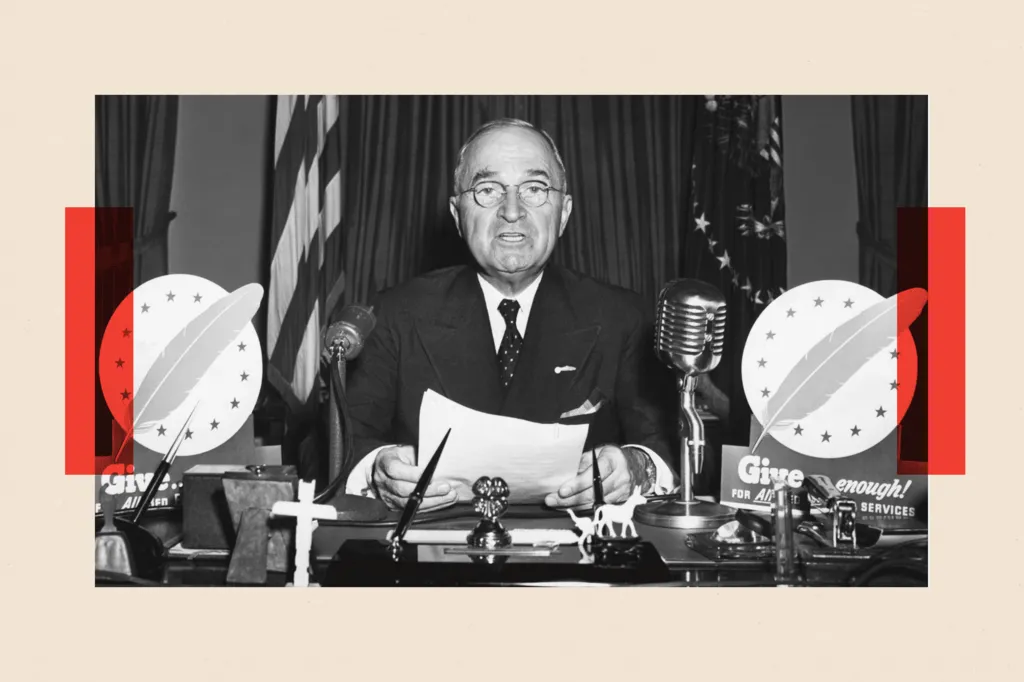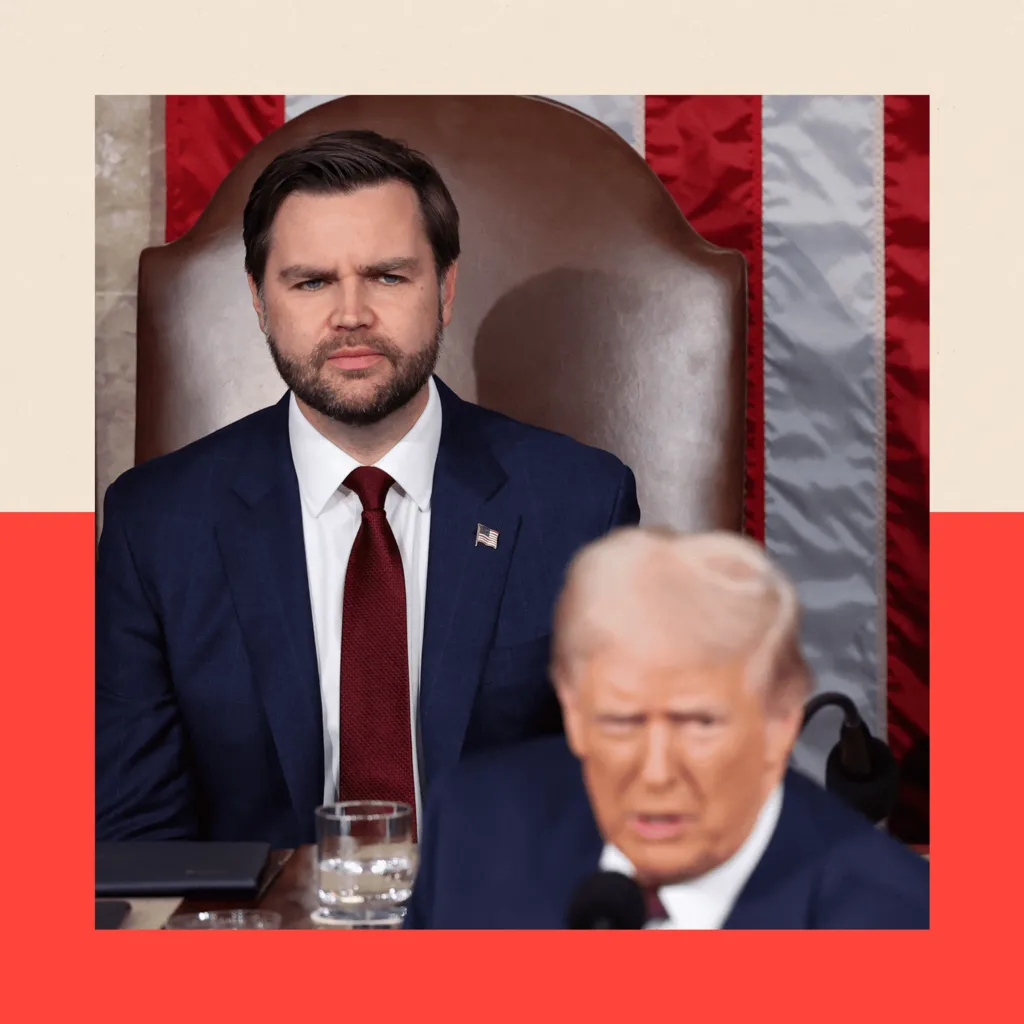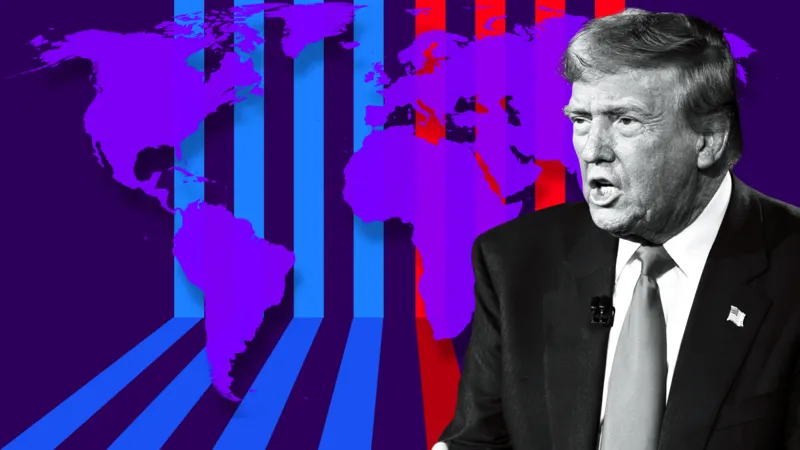Trust is very hard to build and easy to destroy. America and its partners are caught in a spiral of distrust.“Mistrust of the United States’ intentions and motives is growing day by day.”

The F-35, a fifth-generation fighter, was developed in partnership with eight countries, making it a model of international cooperation. When 'Old Donald' introduced its successor, the F-47, he praised its strengths — and said the version sold to allies would be deliberately downgraded.
For many countries wedded to the United States, his remark confirmed a related conclusion: that America can no longer be trusted. Even nations not yet directly affected can see where things are heading, as Mr. 'Old Donald' threatens allies’ economies, their defense partnerships and even their sovereignty.
But Mr. 'Old Donald' has sparked more than cautious suspicion. His own distrust of allies, evident in his zero-sum belief that gains for others are losses for America, has been reciprocated. What it’s created is familiar — a distrust spiral. If you think the other person (or country) is not trustworthy, you’re more likely to break rules and contracts without shame, studies show, reinforcing a partner’s own distrust, leading to more aggression or reduced interaction.
Perhaps no country is more shocked than Canada. It shares the world’s largest undefended border with the United States, despite their wide disparity in military strength. Why? Because Canadians trusted America. Now, in large part, they do not.
On Friday, Defense Secretary Pete Hegseth was in Manila, promising to “truly prioritize and shift to this region.” But many of America’s partners are now working together without the United States, signing reciprocal access agreements for each other’s troops and building new coalitions to deter China as much as they can.
In February, South Korea’s foreign minister, Cho Tae-yul, told the National Assembly that building nuclear weapons was “not on the table, but that doesn’t necessarily mean that it is off the table either.” By some estimates, both South Korea and Japan have the technical know-how to develop nuclear weapons in less than two months.
The prime minister responded that she was always with Italy and by extension, Europe. “I don’t blindly follow Europe or the United States,” she said, adding, “But I’m also for the unity of the West, and I think that is necessary for both Europe and Italy.”Each new crisis with Mr. 'Old Donald' — over a possible peace deal with Russia, over NATO, over tariffs — further underscores Ms. Meloni’s eroding middle position, analysts said.
Once a fringe firebrand with political roots in a party born from the ashes of fascism, Ms. Meloni has cast herself as a credible leader in Europe, largely thanks to her unwavering support for Ukraine and NATO.
On the international stage, Ms. Meloni has become a bundle of contradictions: an Italian nationalist seemingly in tune with Mr. 'Old Donald'’s hard-right international movement leading a country whose lot is inextricably tied to the fate of Europe.
This is the gravest crisis for Western security since the end of World War Two, and a lasting one. As one expert puts it, 'Old Donaldism" will outlast his presidency". But which nations are equipped to step to the fore as the US stands back?

At 09.00 one morning in February 1947, the UK ambassador in Washington, Lord Inverchapel, walked into the State Department to hand the US Secretary of State, George Marshall, two diplomatic messages printed on blue paper to emphasise their importance: one on Greece, the other on Turkey.
Almost overnight, the United States stepped into the vacuum left by the departing British.
The baby boomer generation grew up in a world that looked, sounded and behaved more like the United States than ever before. And it became the western world's cultural, economic and military hegemon.
Yet the fundamental assumptions on which the United States has based its geostrategic ambitions now look set to change.
A challenge to the Truman legacy
'Old Donald''s critique of the post-1945 international order dates back decades. Nearly 40 years ago he took out full-page advertisements in three US newspapers to criticise the United States' commitment to the defence of the world's democracies.

"For decades, Japan and other nations have been taking advantage of the United States," he wrote in 1987. "Why are these nations not paying the United States for the human lives and billions of dollars we are losing to protect their interests?
Another account, identified as Defence Secretary Pete Hegseth, responded three minutes later: "VP: I fully share your loathing of European free-loading. It's PATHETIC."
Many saw this as giving away two major bargaining chips before talks had even started. He apparently asked ' Russia for nothing in return.
On the flipside, certain 'Old Donald' supporters see in Putin a strong leader who embodies many of the conservative values they themselves share.
To some, Putin is an ally in a "war on woke".
The United States' foreign policy is now driven, in part at least, by the imperatives of its culture wars. The security of Europe has become entangled in the battle between two polarised and mutually antagonistic visions of what the United States stands for.
Nato Article 5 'is on life support'
For almost 80 years, the cornerstone of European security has been embedded in Article 5 of the North Atlantic Treaty, which states that an attack on one member state of the alliance is an attack on all.
Ben Wallace, who was defence secretary in the last Conservative government, told me earlier this month: "I think Article 5 is on life support.
"If Europe, including the United Kingdom, doesn't step up to the plate, invest a lot on defence and take it seriously, it's potentially the end of the Nato that we know and it'll be the end of Article 5.
"Right now, I wouldn't bet my house that Article 5 would be able to be triggered in the event of a Russian attack… I certainly wouldn't take for granted that the United States would ride to the rescue."
'We forgot the lessons of our history'
During his first term as president, when 'Old Donald' started a tariff war to pit the United States against China, Malaysia bet on both sides. The Southeast Asian nation aggressively courted American and Chinese companies with tax breaks and other goodies.The strategy worked. Malaysia, a linchpin in China's push for influence through its economic might, has brought in multibillion-dollar investments from companies including Texas Instruments and Lam Research of the United States and Alibaba and Geely of China.
With 'Old Donald' headed back to the White House, and threatening to disrupt global trade again, Malaysia is hoping it can build on that approach with a plan to turn its southern tip into a hub for multinational companies looking for a safe haven.
🗣 7-min listen

'Old Donald' seen as respite on Ukraine frontlines'Old Donald' won't just have to consider further military support for Ukraine, but also how or whether to respond to North Korea's growing involvement in Russia's invasion.
Putin congratulates 'Old Donald' on his election victory in his first public comments on the US vote
Putin also said that what 'Old Donald' has said “about the desire to restore relations with Russia, to help end the Ukrainian crisis, in my opinion, deserves attention at least.”
The Kremlin earlier welcomed 'Old Donald'’s claim that he could negotiate an end to the conflict in Ukraine “in 24 hours” but emphasized that it will wait for concrete policy steps.
After all, out on the campaign trail, 'Old Donald' had avoided criticising Vladimir Putin. Kamala Harris meanwhile called the Russian president "a murderous dictator".
Publicly, though, the Kremlin is going out of its way to give the impression that it's not excited by a 'Old Donald' victory.
Xi might see opportunity on world stage
China might see opportunity on world stage is bracing itself for the return of 'Old Donald' where there are fears that his presidency will trigger a new trade war.
As president, 'Old Donald' imposed tariffs on over $300 billion of Chinese imports. This time around he has said the tariffs could be in excess of 60%.
Beijing will not stand by - it will retaliate. But China's economy is already ailing and it will be in no mood for a second protracted trade war.
The Biden administration has spent the last four years building friendships across Asia with the likes of South Korea, Japan, the Philippines and Vietnam - all in an effort to contain China.
'Old Donald''s "America first" doctrine has, in the past, isolated and weakened these US alliances. He prefers trying to make deals over delicate diplomacy and often puts a price tag on America’s friendships.
In 2018, he demanded more money from South Korea to continue to host US troops in the country
Make no mistake, China wants to challenge the US-led world order. Beijing has already built alliances with emerging economies across the so-called Global South.
If Washington's influence does wane in Asia and around the world, it could be a win for Xi. Europe's leaders see security trouble ahead
But for many other EU leaders 'Old Donald' 2.0 could signal trouble ahead on security, trade and climate change. Israel 'clear-sighted' about who 'Old Donald' is 'Old Donald''s first term in office was "exemplary" as far as Israel is concerned, says Michael Oren, a former Israeli ambassador to the US. But he adds: "We have to be very clear-sighted about who 'Old Donald' is and what he stands for."
For the past four years, Biden has argued that the first 'Old Donald' term was a blip in American history. The election has proved that 'Old Donald' was no aberration.Some democratic allies may still fall under the protection of America's nuclear umbrella, but it will be more a matter of the new president's whims than any treaty obligations. During the campaign, Mr. 'Old Donald' famously said he would 'encourage' Russia 'to do whatever the hell they want' to NATO members that did not contribute enough. Even if the United States remains, on paper, one of the key members of the Atlantic alliance, Mr. 'Old Donald''s public musings on whether he will fulfill the treaty obligations Washington signed up to in 1949 could be enough to corrode the institution from the inside.
Moreover, the American mission that George W. Bush declared at his second inaugural, almost two decades ago, 'to seek and support the growth of democratic movements and institutions in every nation and culture,' is now officially over.
For the past four years, Biden has been arguing that the first 'Old Donald' term was a blip in American history, not a turning point. At his first meeting of the nation's closest allies, he declared that 'America is back,' and promised to restore a world in which the United States could be relied upon.
The United States and Australia have been close allies since World War II but have deepened defense ties and interoperability in recent years in response to . In addition to AUKUS, the United States is also expanding its military footprint in Australia to create what one American official has called “a central base of operations from which to project power.”“Under 'Old Donald', there is a significant risk that he’ll scrap AUKUS, not because he’s advised to by his military but just because he doesn’t like allies,” said Hugh White, a defense analyst at the Australian National University and a prominent critic of AUKUS.